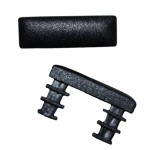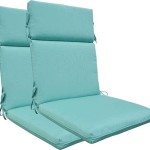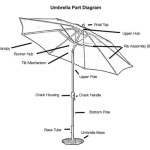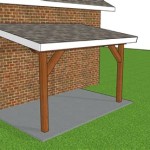Best Ways to Get Rid of Mosquitoes on Your Patio
Mosquitoes can transform a pleasant patio into an irritating and uncomfortable space. Their persistent buzzing and itchy bites make outdoor relaxation nearly impossible. Understanding mosquito behavior and implementing effective control strategies are crucial for reclaiming your patio and enjoying the outdoors. This article examines proven techniques to manage mosquito populations on your patio, encompassing prevention, removal, and ongoing deterrent methods.
Eliminating Breeding Grounds: The Foundation of Mosquito Control
The most effective and sustainable approach to mosquito control focuses on preventing them from breeding in the first place. Mosquitoes require standing water to lay their eggs and complete their life cycle, which can be as short as a week in warm weather. Therefore, identifying and eliminating potential breeding sites is paramount.
One primary area of concern is stagnant water accumulation after rainfall or irrigation. Emptying containers that hold water, such as flower pots, bird baths, buckets, and children's toys, is vital. Even small amounts of water, like that collected in a bottle cap, can serve as a breeding ground for mosquitoes.
Gutters are often overlooked but can become significant breeding sites if they are clogged with leaves and debris. Regularly clean gutters to ensure proper drainage and prevent water from pooling. Consider installing gutter guards to minimize debris accumulation.
Pay attention to areas with poor drainage. Low-lying sections of the patio or yard that collect water should be addressed. Fill in these areas with soil to improve drainage. If the problem is persistent, consult a landscaping professional to discuss solutions such as installing a French drain or regrading the area.
If you have features like ponds or fountains, maintain them properly. Keep the water circulating with a pump or aerator to discourage mosquito breeding. Introduce mosquito-eating fish, such as Gambusia affinis (mosquito fish), to the water feature. These fish are highly effective at controlling mosquito larvae populations.
For water features you cannot easily drain, consider using Bacillus thuringiensis israelensis (Bti) products. Bti is a naturally occurring bacterium that is toxic to mosquito larvae but safe for humans, pets, and other wildlife. Bti is available in various forms, including dunks, granules, and liquids. Follow the product instructions carefully for proper application and dosage.
Swimming pools, even when chlorinated, can become mosquito breeding grounds if not properly maintained. Ensure the pool is adequately chlorinated and the filtration system is functioning correctly. Cover the pool when it is not in use to prevent mosquitoes from laying eggs in the water.
Consider the landscaping around your patio. Dense vegetation can create shaded, humid environments that attract mosquitoes. Trim shrubs and trees regularly to improve air circulation and reduce humidity. Remove any standing water that may collect in plant saucers.
Regularly inspect your property for potential breeding sites, especially after rainfall. A proactive approach to eliminating standing water will significantly reduce mosquito populations and make your patio a more enjoyable space.
Utilizing Mosquito Repellents and Traps on the Patio
While eliminating breeding grounds is crucial for long-term mosquito control, utilizing repellents and traps can provide immediate relief from mosquitoes present on the patio. These methods can be used in conjunction with preventative measures to create a mosquito-free environment.
Personal repellents are an essential tool for protecting yourself from mosquito bites. Repellents containing DEET (N,N-diethyl-meta-toluamide) are widely considered the most effective. The higher the concentration of DEET, the longer the protection lasts. However, DEET should be used with caution, especially on children. Follow the product instructions carefully and avoid applying it to broken skin or near the eyes and mouth.
Alternatives to DEET include repellents containing picaridin, oil of lemon eucalyptus (OLE), or IR3535. Picaridin is a synthetic repellent that offers similar protection to DEET but is generally considered less irritating to the skin. OLE is a plant-based repellent that can provide effective protection for a few hours. IR3535 is another synthetic repellent that is generally considered safe and effective.
Consider using mosquito repellent clothing. Clothing treated with permethrin provides effective protection against mosquitoes and other insects. Permethrin-treated clothing remains effective through multiple washings.
Area repellents can help create a mosquito-free zone on your patio. Citronella candles and torches are a popular option. However, their effectiveness is limited to the immediate vicinity of the flame. The smoke from citronella products can also be irritating to some people.
Diffusers that release mosquito repellent into the air are another option. These diffusers typically use a fan to disperse the repellent over a wider area. Choose a diffuser that uses a repellent that is safe for humans and pets. Read and follow the product instructions carefully.
Mosquito traps can help reduce mosquito populations on the patio. There are several types of mosquito traps available, including propane mosquito traps, electric mosquito traps, and sticky traps. Propane mosquito traps attract mosquitoes by emitting carbon dioxide, which mimics human breath. Electric mosquito traps use ultraviolet light to attract mosquitoes and then electrocute them. Sticky traps are coated with a sticky substance that traps mosquitoes.
The effectiveness of mosquito traps varies depending on the trap type and the surrounding environment. Propane mosquito traps are generally considered the most effective, but they require regular maintenance and can be expensive. Electric mosquito traps are less effective at attracting mosquitoes but are more affordable and require less maintenance. Sticky traps are the least effective but are a low-cost option for monitoring mosquito populations.
When choosing a mosquito trap, consider the size of your patio and the level of mosquito infestation. Place the trap in a strategic location, away from human activity, to maximize its effectiveness. Follow the manufacturer's instructions for proper setup and maintenance.
Combine personal repellents and area repellents for optimal mosquito protection. Using personal repellents in conjunction with area repellents will create a layered defense against mosquitoes, reducing the likelihood of bites.
Landscaping Strategies for Mosquito Deterrence
Strategic landscaping can significantly contribute to reducing mosquito populations and creating a more pleasant patio environment. Certain plants possess natural mosquito-repelling properties, while others can contribute to mosquito breeding if not properly managed.
Incorporate mosquito-repelling plants into your patio landscaping. Several plants contain natural compounds that deter mosquitoes. Citronella grass (Cymbopogon nardus) is a well-known mosquito repellent, but its effectiveness is limited to the immediate vicinity of the plant. Other mosquito-repelling plants include lavender (Lavandula), marigolds (Tagetes), basil (Ocimum basilicum), rosemary (Salvia rosmarinus), and peppermint (Mentha × piperita).
Plant these mosquito-repelling plants in pots or containers around your patio to create a natural mosquito barrier. Consider planting them near seating areas or entryways to provide maximum protection. Regularly prune and maintain these plants to promote healthy growth and maximize their repellent properties.
Avoid planting plants that attract mosquitoes. Dense vegetation, particularly in shaded and humid areas, can create favorable habitats for mosquitoes. Minimize the planting of dense shrubs and groundcover near your patio.
Consider the drainage characteristics of your landscaping. Poorly drained soil can create standing water, which serves as a breeding ground for mosquitoes. Choose plants that thrive in well-drained soil and avoid overwatering. Improve drainage by amending the soil with compost or other organic matter.
Install a bat house to encourage bats to inhabit your property. Bats are natural predators of mosquitoes and other insects. A single bat can consume hundreds of mosquitoes in a single night. Install a bat house in a suitable location, such as on a tree or pole, to attract bats to your property.
Attract mosquito-eating birds to your yard. Birds such as purple martins, swallows, and dragonflies are natural predators of mosquitoes. Provide bird feeders and bird baths to attract these birds to your yard. Plant native trees and shrubs that provide food and shelter for birds.
Consider the lighting on your patio. Mosquitoes are attracted to light, particularly ultraviolet light. Use yellow or sodium vapor lights, which are less attractive to mosquitoes, instead of white or blue lights. Install motion-sensor lights that only turn on when needed to minimize mosquito attraction.
Maintain your lawn regularly. Tall grass and weeds can provide shelter for mosquitoes. Mow your lawn regularly and remove weeds to reduce mosquito habitats. Trim shrubs and trees to improve air circulation and reduce humidity.
Consider installing a fan on your patio. The moving air from a fan can disrupt mosquito flight patterns, making it difficult for them to land and bite. Position the fan to direct airflow towards seating areas.
By implementing these landscaping strategies, you can create a patio environment that is less attractive to mosquitoes and more enjoyable for you and your guests.

Blog How To Control Mosquitoes In Your Backyard

How To Get Rid Of Mosquitoes In Your Yard

How To Keep Bugs Off Your Patio Turf Factory

How To Safely Kill Mosquitoes In Your Yard Tyrant Farms

10 Ways To Get Rid Of Mosquitoes In Your Yard Wikihow

15 Natural Ways To Get Rid Of Mosquitoes In Your Yard

How To Get Rid Of Mosquitoes In Your Lawn And Landscape The Care Nut Lawncarenut

How To Get Rid Of Mosquitoes In Your Yard

How To Rid Your Yard Of Mosquitos The Surprising Chemical Free Solution Kelly Elko

Best Materials To Burn In Your Fire Pit Repel Mosquitoes Walden Backyards








